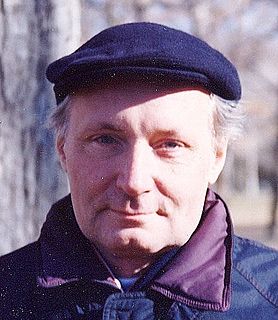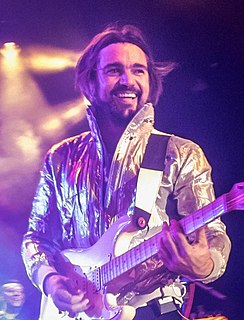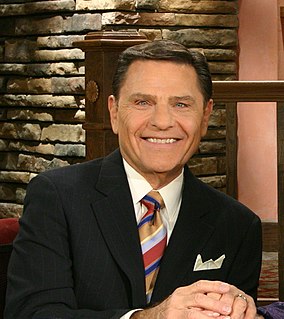A Quote by Neale Donald Walsch
I began to hear what I was being taught about God, by the priest and my parish, and my exterior teaching did not coincide, did not match up, with my interior reality. And as they were teaching me about that God I was thinking: Who are they talking about? This was not how I experienced God. I gradually began to move away from the God of organized religion.
Related Quotes
You hear a lot about God these days: God, the beneficent; God, the all-great; God, the Almighty; God, the most powerful; God, the giver of life; God, the creator of death. I mean, we're hearing about God all the time, so we better learn how to deal with it. But if we know anything about God, God is arbitrary.
I believe God is doing a new thing in the world. God is always moving us to include more people in the kingdom. God has taught us that about people of color, about women, and now I think God is teaching that about gay and lesbian folk. And I am humbled and privileged that I might be playing a very small part in that grand and wonderful plan of God's.
God was on the move; God is on the move; and God will always be on the move. Those who walk with God and listen to God are also on the move. Reading the Bible so we can live it out today means being on the move—always. Anyone who stops and wants to turn a particular moment into a monument, as the disciples did when Jesus was transfigured before them, will soon be wondering where God has gone.
If you want to change people by talking about God, then there is only one way: instead of teaching God, you must live God. Because: "teaching" God is unthinkable in any other way than the way you would teach love or poetry. You teach love only through love, poetry only through writing poetry, faith in God only through a contagious way of trusting.
You can refer to god and you are really just talking about nature. If you are going to say the universe is god, then everything is god, everything is religion. But when we explore traditional religion we are talking about humanistic gods people pray to, that they think can intervene in our lives, who run sort of a heaven-and-hell operation for the afterworld.
Religion and science have nothing to do with each other, they're about different things, science is about the way the world works and religion is about [...] miracles. [...] And in any case, if you ask most ordinary people in church or in a mosque why they believe, it's almost certainly got something to do with the belief that God does wonderful things, that God intervenes, that God heals the sick, that God answers prayers, God forgives sins.
There are two gods. The god our teachers teach us about, and the God who teaches us. The god about whom people usually talk, and the God who talks to us. The god we learn to fear, and the God who speaks to us of mercy. The god who is somewhere up on high, and the God who is here in our daily lives. The god who demands punishment, and the God who forgives us our trespasses. The god who threatens us with the torments of Hell, and the God who shows us the true path.
There are two gods. A god who casts us off because of our sins, and a God who calls to us with His love.
Thus, after a period of about two thousand years the greatest crime became to worship a god other than the God of Moses, whereas injustice became a minor sin. I began to ask myself how this change had come about. Was it linked to a new order in which the female goddesses had been replaced by one male god?
He was not subordinate to God - Adam was walking as a god! What he said "went," what he did "counted"; and when he bowed his knee to Satan and put Satan up above him then there wasn't anything God could do about it because a "god" had placed Satan there. Adam, remember, was created in the god-class, but when he committed high treason he fell below the god-class.



































